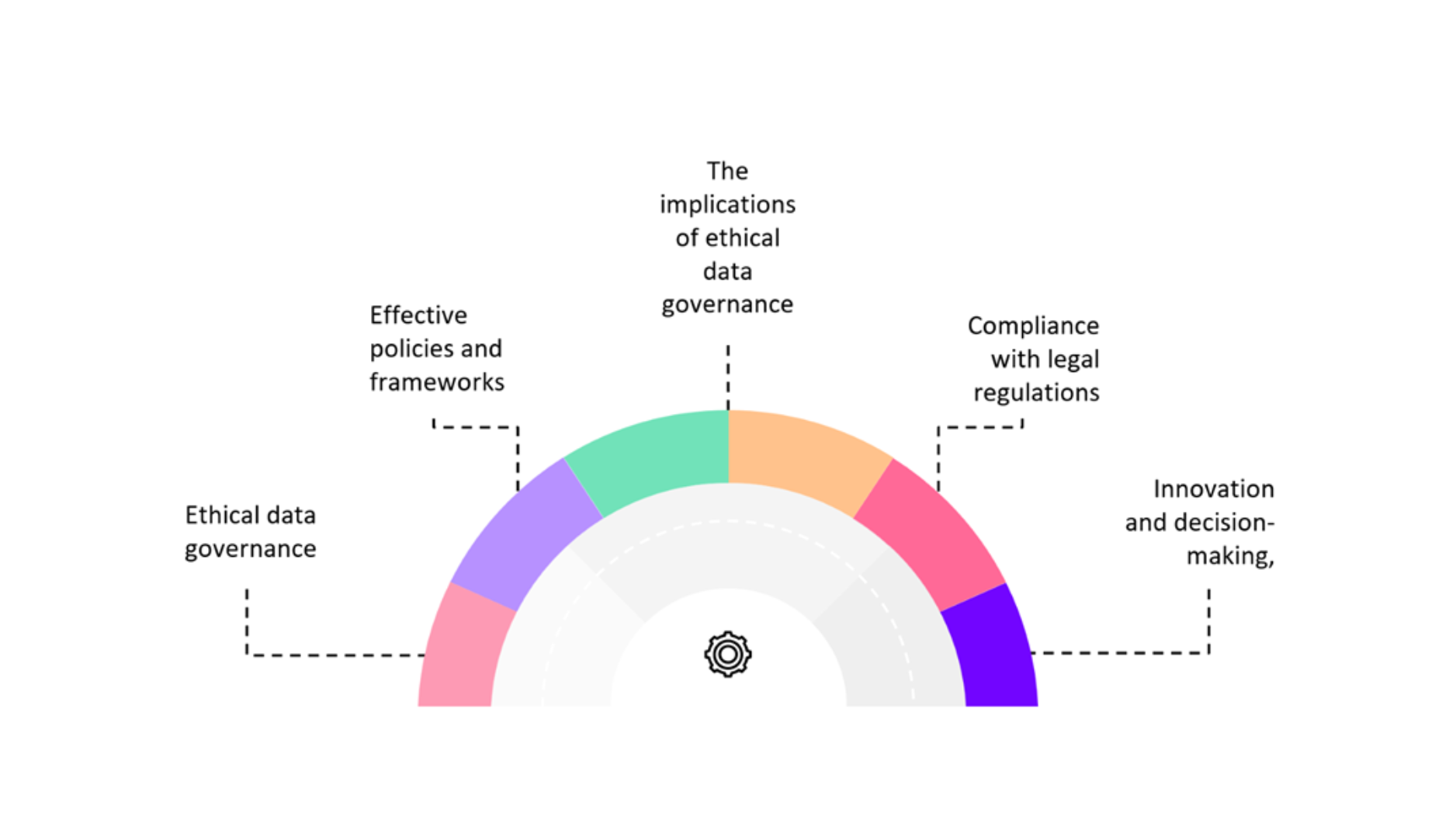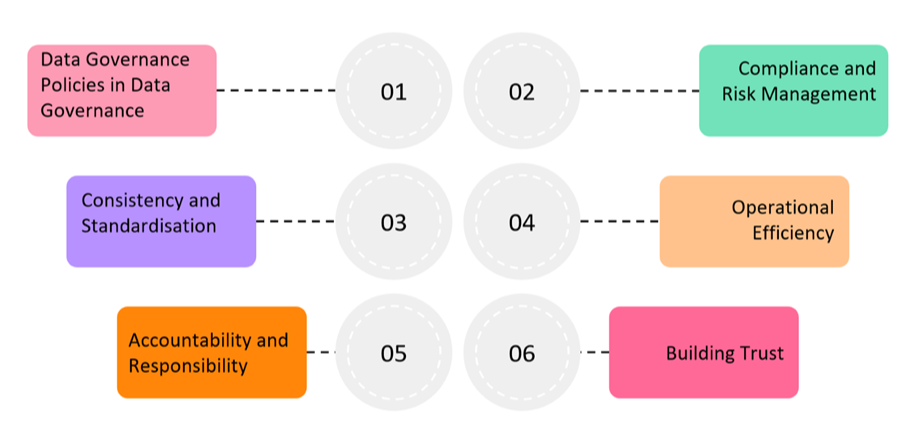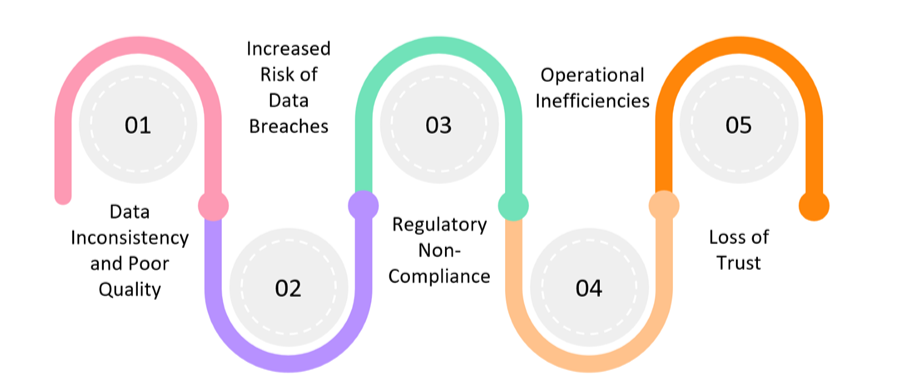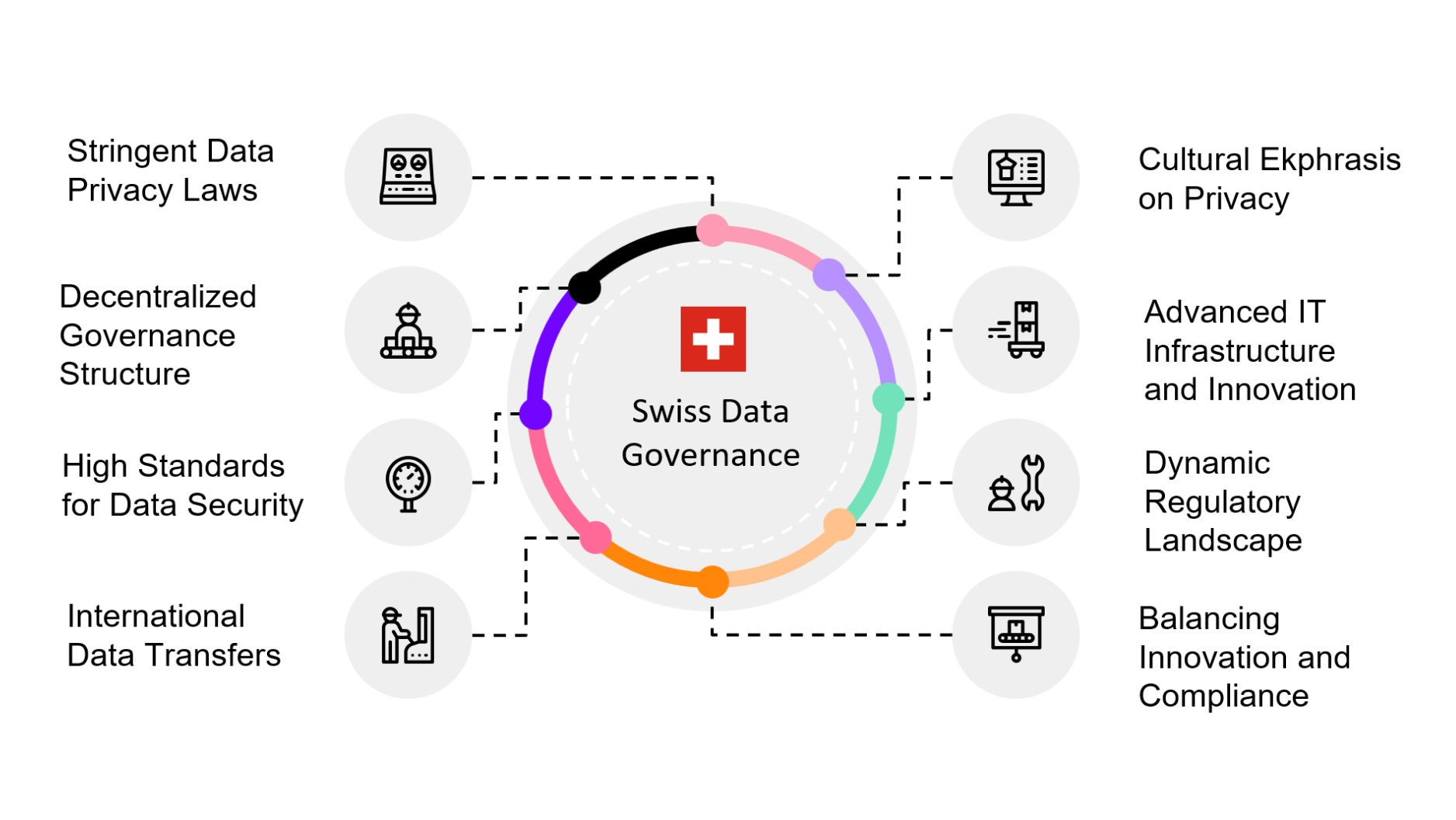
From Chaos to Control: AI and ML in Modern Data Governance
"Without data governance, AI is a huge liability. While AI and ML are transforming data governance by automating tasks, improving data quality and enabling predictive insights, they also require careful attention to ethics, compliance and human oversight," says our HSLU lecturer, Dr Dimitrios Marinos. Find out more about the benefits of integrating AI and ML into data governance by reading the full article.
Shortcuts:
Intro | The significance of metadata | Preventing biases in data | Thinking about data privacy | Conclusion | Info-Events | Programme Information | Contact

Dr Dimitrios Marinos, our lecturer at HSLU, has deep expertise in artificial intelligence, big data analytics, digital transformation, AI ethics, data governance and more.
What role do AI and ML play in the data governance landscape?
Artificial intelligence (AI) and machine learning (ML) are rapidly reshaping the data governance landscape, bringing with them both significant opportunities and challenges. As organisations increasingly recognise the value of data as a critical asset, the integration of AI and ML into data governance frameworks is becoming essential. These technologies not only improve the efficiency and accuracy of data management processes, but also enable organisations to gain deeper insights and make more informed decisions. However, the adoption of AI and ML in data governance requires careful consideration of ethical implications, regulatory compliance and the need for human oversight.
Traditionally, these tasks have been labour-intensive and prone to human error. AI and ML are particularly transformative in automating various data governance tasks, such as data cleansing, preparation, and quality management. With AI and ML, organisations can automate the identification and correction of data inconsistencies, duplicates, and errors across large data sets. This automation not only reduces the time and resources required for data management, but also ensures that data is accurate, reliable and ready for analysis. By using AI-driven algorithms, organisations can maintain high data quality standards with minimal manual intervention.
The significance of metadata
Metadata, often referred to as ‘data about data’, plays a critical role in understanding the context, structure and governance of data assets. Beyond data cleansing, AI and ML can significantly improve the process of metadata management and data lineage. AI-powered tools can automate the collection, cataloguing and updating of metadata, ensuring that it remains consistent and up-to-date across the organisation. This automation facilitates better data discovery and use, as stakeholders can quickly find and understand the data they need. In addition, AI-driven data lineage tools provide a clear visualisation of how data flows and transforms within the organisation, enabling better impact analysis and traceability. This is particularly important in industries with strict regulatory requirements, where understanding the provenance of data is essential for compliance.
Another area where AI and ML are having a significant impact is in predictive analytics within data governance. By analysing historical data patterns, ML models can predict future trends, detect potential problems and identify opportunities for optimisation. For example, AI can be used to predict data quality issues before they occur, allowing organisations to take proactive steps to address them. This predictive capability is invaluable in maintaining the integrity of data assets and ensuring that decision-makers have access to accurate and timely information. In addition, AI-driven analytics can deliver personalised insights to users based on their specific needs and behaviours, improving the overall user experience and enabling more targeted decision making.
How to prevent biases in data
As AI systems become more involved in decision-making processes, it is crucial to ensure that these systems operate transparently and without bias. The integration of AI and ML into data governance also presents challenges, particularly in terms of ethical considerations and regulatory compliance. AI algorithms can inadvertently perpetuate existing biases in data, or make decisions that are difficult for humans to interpret. To address this, organisations need to implement rigorous testing, validation and monitoring of AI models to ensure fairness and accountability. In addition, there is a growing need for clear guidelines and regulations governing the use of AI in data governance to protect individual rights and prevent misuse.
Don’t forget about data privacy
Data privacy is another critical concern in the AI-driven data governance landscape. With the advent of stringent data protection regulations, such as the General Data Protection Regulation (GDPR) in Europe and the California Consumer Privacy Act (CCPA) in the United States, organisations must ensure that their AI and ML systems comply with these laws. This includes implementing robust data classification, anonymisation and encryption practices to protect personal and sensitive data. In addition, AI can be used to automate compliance tasks, such as monitoring data access, detecting breaches, and managing the rights of data subjects. However, this requires a delicate balance between leveraging AI for efficiency and maintaining control over data to meet regulatory obligations.
Conclusion
Despite these challenges, the benefits of integrating AI and ML into data governance are undeniable. By automating routine tasks, improving data quality, enhancing metadata management and enabling predictive analytics, AI and ML can help organisations unlock the full potential of their data assets. However, successful implementation of AI-driven data governance requires a thoughtful approach that considers the ethical, regulatory and operational implications. Organisations must invest in the necessary tools, skills, and frameworks to harness the power of AI while maintaining trust, transparency, and compliance.
As these technologies continue to evolve, they will play an increasingly important role in helping organisations effectively manage and leverage their data assets. However, the adoption of AI and ML in data governance must be accompanied by a commitment to ethical practices, regulatory compliance, and human oversight to ensure that the benefits are realised without compromising trust and accountability. As we move forward, the organisations that successfully navigate these challenges will be best positioned to thrive in the data-driven economy. AI and ML are revolutionising data governance by automating processes, improving data quality and enabling predictive insights.
We would like to thank Dr Dimitrios Marinos for his dedication and for sharing these valuable insights.
Data is the resource of the 21st century!
Register and join us for a free online Information-Event:
Monday, 11 August 2025 (Online, English)
Monday, 8 September 2025 (Online, German)
Monday, 6 October 2025 (Online, English)
Monday, 3 November 2025 (Online, German)
Programme Info: MSc in Applied Information and Data Science
More Field Reports & Experiences: Professional portraits & study insights
Frequently Asked Questions: FAQ





























